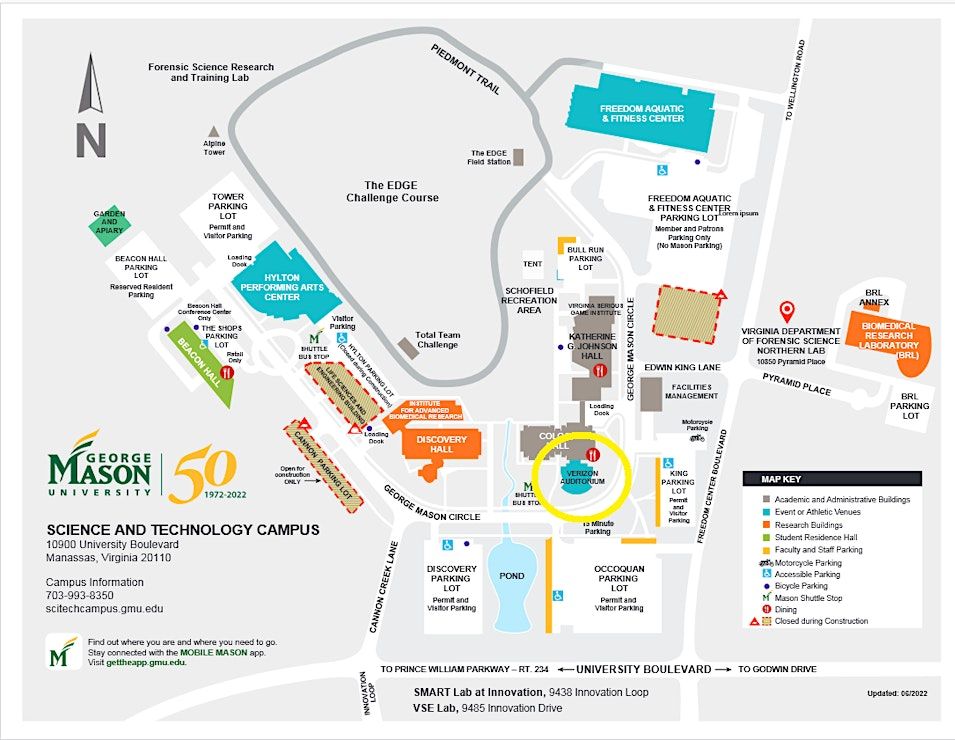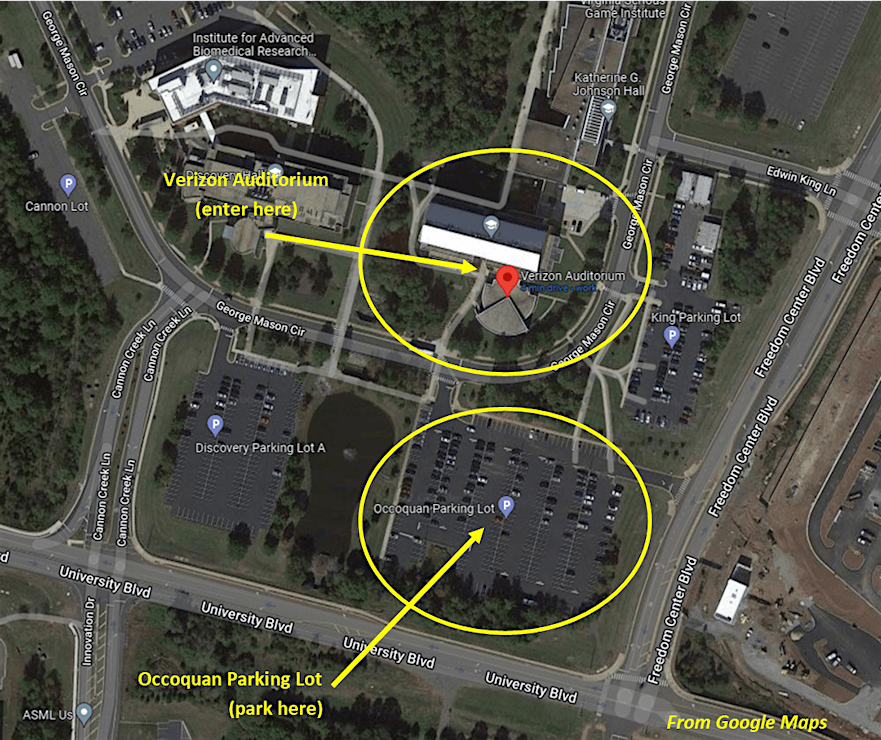
Stop mowing and get going on building your dream landscape!
About this Event
About
Whether you are new to native plants and what they can do for your property or you are looking for alternative landscaping ideas, this event is for you! Native plants can:
- Create a beautiful yard
- Save time so you can enjoy other activities
- Create habitat for birds & pollinators
- Save money on fertilizer & pesticides
- Improve water quality
- Curb Erosion
Cost/Tickets
This is a hybrid event. Participants can either choose to join in-person or virtually:
In-person General Admission Tickets:
Early Bird: $40 (deal ends 12/31/24)
Normal: $45 (ends 2/6/2025 when online registration closes)
At the Door: $55 (note that purchasing tickets at the door won't gurantee you a lunch )
*In-person Student Tickets: $30
Virtual Tickets (for everyone attending virtually): $25
To register for the event, click "Get Tickets" above.
*Students, you will need to present your student ID at check-in. Otherwise, you will have to pay the at the door price.
Other things to note:
- In-person tickets include light breakfast fare, lunch, and access to exhibitors.
- Doors will not open to the public until 9 a.m. for in-person ticket holders.
- Virtual tickets give you access to the Zoom meeting link. Please note that virtual registrants may only attend online.
- Pre-ordering in-person ticket sales will close at 11:59pm on Thursday, February 6th, unless tickets are sold out (see this page for updates on ticket status).
- Walk-in registration will be available the day of the event from 9:00am-9:45am on Saturday, February 8th, unless tickets have sold out.
- Virtual ticket sales will end at 9am on Saturday, February 8th.
Location
The venue is located at the Verizon Auditorium at George Mason University, George Mason Circle, Manassas, VA, 20109. Please see the maps below and find the circled area.
Parking is free (on weekends) and available in the Occoquan lot, Discovery lot, or King lot See map below for more information.
Refunds
We can offer refunds and ticket swaps until the end of Friday, February 2nd. If you are doing a ticket swap from Virtual to In-Person, you will have to pay the difference and the EventBrite fee again.
Inclement Weather (pertaining only to In-person ticket holders)
If there is inclement weather, we will still be having the symposium, but it will only be offered virtually. If this is the case, you will be notified the Friday before the symposium. As we have to order the food ahead of time, we won’t be able to do ticket reimbursements for the in-person ticket holders.
Lunch (pertaining only to In-person ticket holders)
We will be having box lunches this year. All components of the box lunches are compostable to help reduce waste. You will make your lunch selection when you sign up.
BRING YOUR OWN WATER BOTTLE - There will be sodas available, but to help reduce waste we ask everyone to bring their own water bottle.
Check-In
In-person registration will be 9:00am-9:45am (EST). Please remember to keep your tickets handy either in the Eventbrite app or your email. You will need them at check-in.
Zoom information will be e-mailed to all virtual-only ticket holders 2 days before the event. It will be e-mailed again on the day of the event to all ticket holders. The Zoom meeting will open at 9:00am.
Recordings
All of the presentations will be recorded and available to all participants (including our keynote speaker). Participants will be e-mailed a link to view these presentations following the event.
Keynote Speaker
Douglas Tallamy, Author and TA Baker Professor of Agriculture and Natural Resources at the University of Delaware
A Chickadee’s Guide to Gardening
In the past we have designed our landscapes strictly for our own pleasure, with no thought to how they might impact the natural world around us. Such landscapes do not contribute much to local ecosystem function and support little life. Using chickadees and other wildlife as guides, Tallamy will explain how plants that evolved in concert with local animals provide for their needs better than plants that evolved elsewhere. In the process he shows how creating living landscapes by sharing our spaces with other living things will not reduce our pleasurable garden experiences, but enhance them.
Schedule (EST):
9:00am-9:45am – Registration
9:45am-10:00am – Welcome
10:00am-11:00am – Keynote: Doug Tallamy: A Chickadee’s Guide to Gardening
11:00-11:30: Networking, book signing
11:30am-12:30pm – Breakout Session 1
12:30pm-1:45pm – Lunch
1:45pm-2:45pm – Breakout Session 2
3:00pm-4:00pm – Breakout Session 3
Please choose one presentation to attend at each session:
Breakout Session 1 (11:30am-12:30pm):
A) Successful Outdoor Winter Seed Sowing
There is no better cure for the winter blues than experiencing the magic of growing native plants from seed inside your home. No greenhouse required – just a few supplies, tips and tricks are all you need.
Sue Puleo, Owner of Faire Meddow
B) Entice pollinators/insects into your garden: Include Herbaceous Native Plants—and let the show begin!
Many nurseries draw in buyers to purchase plants that appeal to the human eye. Learn how to select native herbaceous perennial plants that will draw in insects/pollinators who will prosper and return year after year. Consider your property: you’ll need to select native plants that are compatible to the conditions of your site. The right plant in the right place will provide a great deal of joy to the gardener and a new habitat for insects/pollinators.
Laura Beaty, VNPS Horticulture Chair
C) Restoring Suburban/Urban Soil Health
For residents of cities and suburbs, the soil in our front and backyards is often dense, impermeable, infertile, and an all-around difficult environment for plant growth. Learn how you can restore your home’s soil to health and provide environmental benefits that extend beyond your property lines.Description coming soon.
Dan Schwartz, Soils Scientist at Northern Virginia Soil and Water Conservation District
D) Container Gardening with Native Plants
Seasonal combinations of native plants can provide anyone with attractive, interesting, and ecologically beneficial planters.
Nancy Berlin, Owner of Gentle Landscaping Design, LLC
E) Native Cultivars vs. Straight Species – Does it matter?
As native plants become more popular, many cultivars are being offered in the marketplace. But do these cultivars still benefit pollinators and wildlife or are they just decorative items in the landscape? Learn about the results of several trials that have been conducted in the Mid-Atlantic and New England and get some tips on how to choose plants that will most benefit your ecosystem.
Connie Schmotzer, Coordinator for Pollinator Habitat Certification, Penn State Extension Master Gardeners
Breakout Session 2 (1:45pm-2:45pm):
A) Creating a Native Food Forest
Learn how to incorporate native edible food plants into your landscape. From a townhouse to a farmhouse, we can grow a wide range of plants that will provide food for both humans and wildlife.
Clay Morris, Environmental Program Manager for Prince William County Public Works
B) Small Space Garden Design
Explore the basics of design, from hardscape and bed layout to unique plant selection. Learn how to fill your townhouse plot or garden nook with year-round interest and a few key elements to make it a little slice of paradise. Several native plants with smaller stature or upright habits will be highlighted.
Adam Bucher, Head Horticulturist at Green Springs Gardens in Annandale, VA
C) What’s Bugging You? An Intro to Landscape Integrated Pest Management
As we encounter pest problems in the landscape, proper diagnosis of the cause is important for effective control. Integrated pest management (IPM) provides a system of strategies for managing any pest population to an acceptable level. In this session, we will review the steps for properly diagnosing a pest problem and the options for long-term control.
Paige Thacker, Unit Extension Director for Prince William - Virginia Cooperative Extension
D) Native Tree Selection
Trees are the most important contributors to our natural ecological communities, supporting insects, songbirds other wildlife and creating environments that counteract climate change. Learn specifics of a variety of shade and ornamental trees to help you make the best selections to improve your property and neighborhood.
Julie Flanagan, Certified Arborist
E) Who are the Pollinators?
Plants and pollinators co-evolved over millions of years. Plants developed ways of attracting pollinators, and pollinators evolved traits and behaviors that made their pollination efforts more effective. This is important to us because one of every three bites of food we eat depends on pollinators. Judy will discuss pollination in general, and then focus on the stories of some of our local insect pollinators and the native plants they rely on.
Judy Gallagher, Board Member, Northern Virginia Bird Alliance
Breakout Session 3 ( 3:00pm-4:00pm):
A) Attracting Birds to Your Yard with Native Plants
If you want to see birds in your yard, you need more than birdfeeders to supply their needs. Learn about what it takes to attract our feathered friends throughout the seasons.
Nancy Vehrs, President of the Virginia Native Plant Society and the Prince William Wildflower Society
B) Urban Forestry
A quick look into urban forestry and what assistance DOF can provide to landowners to achieve their goals.
Melina Cienski , Urban & Community Forester for Prince William and Stafford County from the Virginia Department of Forestry
C) Meadows
Add color and beauty to your yard while supporting local wildlife by starting a native wildflower meadow. Learn how to plan, plant, and maintain a native plant meadow.
Nancy Berlin, Owner of Gentle Landscaping Design, LLC
D) Native Plant Know-How: Avoiding Common Pitfalls for Beginners
Starting a native plant garden can be exciting, but new gardeners often encounter challenges that hinder their success. In this talk, you'll learn about the most common mistakes beginners make—like improper site selection, overwatering, and choosing the wrong plants for the ecosystem—and how to avoid them. With practical tips and insights, this session will set you on the path to creating a thriving, low-maintenance garden that benefits both you and local wildlife.
Stephanie Johnson , Owner of Green Steeze Conservation Landscaping
E) Too Hot! - Too Cold!! - Climate change impact on native plants
This presentation explores the profound effects of climate change on the diverse plant ecosystems in Virginia. As global temperatures rise and weather patterns shift, Virginia’s native flora faces significant challenges and transformations. Join this session as we delve into the intricate relationship between climate change and plant life in Virginia, highlighting the challenge to preserve our natural heritage. Bring your own examples of changes you have noticed to share with the group.
Janene Cullen, PhD, Virginia Cooperative Extension Prince William Master Gardener, Audubon Ambassador


Huge thanks to our sponsors for hosting this year's Native Plant Symposium!



Event Venue & Nearby Stays
Verizon Auditorium, George Mason University, Manassas, United States
USD 0.00 to USD 49.87










